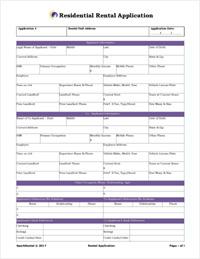
One of the significant advantages of investing in real estate is leverage: the ability to buy your assets with other people’s money.
The property appreciates even as your loan balance shrinks. Your rents go up every year while your debt payments stay fixed. That makes real estate a great hedge against inflation and its many other benefits.
But if you’ve ever tried to get financing for an investment property, you know how hard it can be – especially if you’ve never owned investment real estate before. So, how do you get a loan for an investment property with a low down payment?
In this article, you’ll learn how:
-
- Real estate investments allow you to leverage other people’s money as the property appreciates while your loan balance decreases.
- Rental property loans generally have higher interest rates and require larger down payments than owner-occupied mortgages due to the increased risk associated with investment properties.
- Keeping a high credit score, researching competitive loan terms, and organizing financial documents early in the application process help lower loan costs.
How Does A Rental Property Loan Work?
Rental property loans differ from traditional mortgage loans in key ways that lenders and investors should understand. Interest rates tend to run higher due to the increased risks lenders associate with investment properties.
Down payment requirements are also larger, as lenders typically want a more substantial amount upfront for rental properties versus primary residences. That said, a 30-year loan and fixed monthly payments provide stability for projecting cash flow.
While stricter terms account for lender risk, some aspects can benefit real estate investors. For example, interest payments are tax-deductible expenses. Moreover, the higher down payments result in lower loan-to-value ratios, reducing mortgage payments and potentially increasing positive monthly cash flow.
Rental Property Loan Options For You
Some standard loan options to consider when seeking financing to purchase a rental property include:
| Loan Option | Key Features | Considerations |
| Private Lender | Customized terms, real estate expertise | Equity positions, ongoing capital source, higher interest costs |
| Portfolio Lender | Multiple property mortgages, potential discounts | Higher fees, prepayment penalties |
| Non-QM Loans | Rental income focus, alternative financing | Higher interest rates, down payment requirements |
| Seller Financing | Generate interest income, flexibility | Credit checks, down payments similar to banks |
| Blanket Loans | Finance multiple properties, tailored terms | Release clauses, individual property sale options |
| VA Joint Loans | No minimum credit score, owner occupancy | Eligibility for military (retired or not), favorable terms |
| Conventional Loans | Lower interest rates, underwriting guidelines | Limitations on the number of mortgaged properties |
| FHA Loans | Lower credit barriers, income from rentals | Owner must occupy at least one unit |
| HELOC & Equity Loan | Leverage existing property equity | Cap on borrowing potential, higher rates and fees |
Private Lenders
Private lenders provide an alternative for real estate investors by pooling private capital to provide a mortgage and structuring customized loan terms based on the specifics of each property deal and borrower. Their real estate expertise allows them to tailor agreements around fees, interest rates, and potentially small equity positions that match the risk and profit potential. For experienced rental property owners, private funding can be an ongoing capital source for acquiring additional investments if initial deals perform as projected.
Portfolio Lenders
Portfolio lending involves a single institutional lender providing individual mortgages on multiple rental properties owned by the same real estate investor. Portfolio lenders often offer volume discounts on interest rates or customized terms across a group of property loans. Investors can qualify for more favorable rates and terms on each property loan as part of the overall portfolio lending relationship, though fees and prepayment penalties may still apply.
Compare interest rates from Forman Loan Services, Kiavi, New Silver, and Visio on our rental property loans page.
Non-QM Loans
Non-qualified mortgage (Non-QM) loans provide alternative financing based primarily on a property’s rental income potential rather than the borrower’s credit profile. However, interest rates and down payment requirements are often higher than conventional mortgage programs. These loans allow confident investors to obtain financing for a rental property despite not meeting typical mortgage qualification standards.
Seller Financing
Seller financing allows property owners with significant home equity to carry the loan while offering financing to the buyer – rather than receiving the full sale price in cash. It enables sellers to generate interest income over time through the buyer’s monthly mortgage payments. Seller financing can also provide flexibility on capital gains tax liability compared to a lump sum 1031 exchange. While potentially more accessible to buyers in some cases, seller-held mortgages generally involve credit standards and down payment requirements similar to traditional bank loans.
Blanket Loans
Blanket loans allow real estate investors to finance the purchase or refinance of multiple rental properties through a single loan. Both mortgage brokers and private lenders offer these customized loans, with terms such as interest rates, loan length, down payments, and credit requirements tailored to meet the needs of borrowers and lenders. The pooled properties typically serve as collective collateral under a blanket loan, though release clauses may enable the sale of individual properties without requiring complete refinancing.
VA Joint Loans
VA Home Loans offers financing options for eligible military members, veterans, and spouses. This loan allows the purchase of up to 7-unit rental properties. The best thing is, no minimum credit score, down payment requirements, and occupancy terms requiring the owner to live on-site in one of the units.
Conventional Loans
Conventional conforming loans from banks, credit unions, and mortgage brokers offer familiar financing options for those who want to buy a rental property at lower interest rates, particularly those with higher credit scores. While down payments can fall below 20%, these loans must adhere to underwriting guidelines. Though some allow ownership of up to ten mortgaged properties, many conventional lenders set lower limits around four loans per borrower. They also don’t charge private mortgage insurance.
You can compare personalized rate quotes on Credible for conventional mortgage loans.
FHA Loans
Federal Housing Administration (FHA) loans from lenders and brokers offer investors another choice featuring potentially lower credit barriers and down payments than conventional mortgages. Income from current rental properties can assist with qualification.
The FHA Multifamily Loan Program also finances purchases, construction, or renovations of multifamily rentals if the owner occupies one unit for at least 12 months. These government-backed loans provide alternative terms to those unable to meet conventional underwriting standards.
HELOC (Home Equity Line of Credit)
Home equity lines of credit and home equity loans allow real estate investors to leverage existing property equity as down payments on additional rental purchases. This funding strategy extracts cash from current assets and can often be used to finance other properties.
HELOCs provide revolving access to secured, and finite credit limits based on property values. Investors can draw as needed, making monthly interest payments similar to credit cards. The interest rate will likely be lower than a credit card, as will the minimum payment on a percentage basis. You could also say home equity loans are second mortgages.
Lenders typically cap borrowing potential between around 80% of total equity. Compared to cash-out refinancing, interest rates, and fees may also run higher for these options.
Unsecured Business Lines of Credit & Cards
Real estate investors qualify as small business owners, which means they can open unsecured business credit cards and lines of credit. Which they can then use to fund down payments on rental properties, repairs, materials, and more.
Check out Fund & Grow as a business credit concierge service that specializes for real estate investors. In three rounds of funding over a year, they help investors open $100-250K in unsecured business credit.
How to Get a Rental Property Without Down Payment
Acquiring a rental property without a down payment (or at least a small one) is possible through several strategies.
Seller financing arrangements allow buyers to negotiate terms with sellers who act as lenders, potentially reducing upfront costs.
Lease-to-own agreements let prospective buyers lease a property first and accumulate funds over time that may cover a future down payment. In some cases, buyers can assume the existing mortgage on a property without requiring a new down payment.
Partnerships and joint ventures make it feasible to pool resources and share responsibilities for owning investment properties. Creative financing techniques, though carrying more risk, provide alternatives to standard down payments.
Government programs and private lenders sometimes offer assistance or flexible lending criteria for real estate investors seeking properties with limited personal funds.
Requirements for Investment Property Loans
Lenders view investment property loans as riskier than loans for your primary residence. As a result, there are stricter qualifying requirements for investment property loans. These include:
Higher Credit Score
A minimum credit score of 640 is typically required, but requirements of 700+ are standard for multifamily homes.
Higher Down Payments
Down payments of 20% or more are typically required for investment properties, compared to as low as 3.5% (or less) for owner-occupied homes. Gifts cannot be used for down payments on conventional investment property loans.
Reserves/Savings
Lenders want new borrowers to maintain reserves equal to 2-6 months of mortgage payments in the bank. The required amount will ultimately depend on how many properties the borrower owns – and the underwriter.
Proof of Rental Income
Lenders may request documentation like leases, rental history, and tax returns showing rental income. The appraisal usually includes an analysis of market rents, too.
History of Property Management
Certain loans require documentation of experience managing rental properties. Tax returns showing previous rentals may be needed.
Want to compare investment property loans?

What do lenders charge for a rental property mortgage? What credit scores and down payments do they require?
How about fix-and-flip loans?
We compare the best purchase-rehab lenders and long-term landlord loans on LTV, interest rates, closing costs, income requirements and more.
How to Reduce Rental Property Loan Costs
Controlling loan costs can increase rental properties’ cash flow. Investors may consider the following strategies when applying for multifamily mortgages:
-
- A higher credit score, lower loan-to-value ratios, and a down payment of >25%.
- Research competitive loan terms and conditions among experienced local lenders and brokers.
- Organize key financial application documents early, including W-2s, bank statements, and tax returns. Being organized can signal an investor’s credibility to lenders.
- Leveraging accounting systems to automatically generate income, net cash flow, and capital expenditures statements for existing properties. Tracking this data provides reporting to profile one’s real estate business for the lender’s review.
How to Estimate Cash Flow
Lenders evaluate rental property loans based on cash flow projections. Consider the factors below.
-
- Gross rental income
- Vacancy allowances
- Management fees
- Operating expenses
- Utilities
- HOA fees
- Taxes and insurance
- Mortgage payments
The Performance of Rental Property Matters
Lenders evaluate rental property loan applications by analyzing potential cash flow from different perspectives. Here are some factors to consider:
Capitalization Rate
The capitalization rate (or “cap rate”) compares a property’s net operating income (excluding mortgage payments) to the purchase price. It measures potential return and varies by market. For example, for a $250,000 rental property with a $16,500 annual NOI, the cap rate is 6.6%.
Cash-on-Cash Return
The cash-on-cash return ratio compares pre-tax cash flow to the investor’s cash investment amount. For example, a $300,000 rental is acquired with a $75,000 down payment, and it provides $5,000 in annual pre-tax cash flow. That means it has a 6.67% cash-on-cash return.
Loan-to-Value Ratio
The loan-to-value ratio compares the mortgage amount to the property value. A lower down payment increases cash-on-cash returns and increases risk if expenses exceed income. Most lenders prefer an LTV of 75%. A $90,000 loan on a $120,000 property has a 75% LTV.
FAQ
What is an investment loan?
Investment property loans allow borrowers to finance residential properties that generate rental income instead of being used as their primary home. Investment loans have different approval requirements and terms compared to typical home mortgages.
What does it mean that it is a first mortgage?
A first mortgage has priority over all other liens and mortgages on a property. If the property is sold or the borrower defaults, the first mortgage must be repaid before any junior mortgages.
How much is the first mortgage payment?
The initial first mortgage payment is typically higher than subsequent payments. This covers interest from the closing date through the end of that month and the normal principal, interest, and escrow for the first full month.
What is the first step in the mortgage process?
The first step in obtaining a mortgage is determining an affordable monthly payment range and maximum purchase price based on income, expenses, and down payment. After getting pre-approved, shop for homes within the approved price limit. Once a property is chosen, select a lender and complete the full application and approval process before closing.♦
What are your favorite ways to finance investment properties?
More Reads to Make You Rich:
*Credible Disclosure: Prequalified rates are based on the information you provide and a soft credit inquiry. Receiving prequalified rates does not guarantee that the Lender will extend you an offer of credit. You are not yet approved for a loan or a specific rate. All credit decisions, including loan approval, if any, are determined by Lenders, in their sole discretion. Rates and terms are subject to change without notice. Rates from Lenders may differ from prequalified rates due to factors which may include, but are not limited to: (i) changes in your personal credit circumstances; (ii) additional information in your hard credit pull and/or additional information you provide (or are unable to provide) to the Lender during the underwriting process; and/or (iii) changes in APRs (e.g., an increase in the rate index between the time of prequalification and the time of application or loan closing. (Or, if the loan option is a variable rate loan, then the interest rate index used to set the APR is subject to increases or decreases at any time). Lenders reserve the right to change or withdraw the prequalified rates at any time.
Credible Operations, Inc. NMLS# 1681276, “Credible.” Not available in all states. www.nmlsconsumeraccess.org.
About the Author

G. Brian Davis is a real estate investor and cofounder of SparkRental who spends 10 months of the year in South America. His mission: to help 5,000 people reach financial independence with passive income from real estate. If you want to be one of them, join Brian and Deni for a free class on How to Earn 15-30% on Fractional Real Estate Investments.




























These are handy tips and tricks. Very well explained. Thank you!
Glad you found them useful Hazal!
So many ways! Thank you for sharing with us.
Glad to hear they were helpful Amma!
Sparkrental always comes up with such important information. Hats off!
Much appreciated Mona!
Great tips here! I have the money to buy a property in cash but I will still get a loan, for many reasons.
Keep us posted on how we can help Phoebe!
Owner financing seems really interesting!
We have a whole article on it Morro, definitely worth checking out!